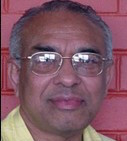The Dickoya Hospital & Muslim Leadership

India’s magnanimous and magnificent gift of a modern hospital at Dickoya built at a cost of 1,200 million Sri Lankan rupees is an act that should put all Muslim parliamentarians and their Arab backers in shame. Although the hospital is located within the Hatton-Dickoya urban council area in the Nuwara Eliya Disrtrict, where the Indian Tamil community is heavily concentrated, yet, it is a gift to the nation as a whole and not to a particular community. The gift also represents the success of a people oriented Indian diplomacy, even though it will ultimately help India reap maximum economic and geostrategic benefits from Indo-Sri Lankan relations.
Since the end of the civil war in 2009 in which India’s covert support to Sri Lanka’s military manoeuvres made the Sinhalese army’s victory against the LTTE easier, India’s overall image in Sri Lanka and particularly within the majority community has become friendlier. The psychological fear that the Sinhalese elite carried for centuries over a threatening South Indian Tamil invasion completely evaporated after the war thanks partly to the role of Delhi and partly to the ineptitude of LTTE leadership. Indo-Lanka relations have improved tremendously since 2009 and Prime Minister Modi’s timely gift of this hospital will certainly cement that relationship. At the same time one should not forget the basic truth in international relations that behind all acts of altruism there is always the national interest. India cannot be an exception to this rule. As Jawaharlal Nehru said in a speech shortly after India’s independence, “We may talk about international goodwill and mean what we say. But in the ultimate analysis, a government functions for the good of the country it governs and no government dare do anything which in the short or long run is manifestly to the disadvantage of that country.”
While India’s gift for the moment will go a long way to improve not only Indo-Lankan relations but also, as one of its side effects, Sinhalese-Tamil relations the Muslim community’s image since the end of the civil war on the other hand has taken a negative turn. In spite of all Muslim parliamentarians allying themselves with the ruling regime and with several amongst them achieving ministerial status with all its embedded prestige, remuneration package and perks, the anti-Muslim feeling in the country is growing by the day. The irony of it is that all these Muslim ministers and their Muslim parliamentary colleagues are proudly trumpeting what a close relationship that they have managed to cultivate with the ruling regimes of rich Arab nations in the Gulf and to the benefit of Sri Lanka. One of these ministers has even gone all out to redesign the urban infrastructural make up of his constituency by planting date palms along the street so that it resembles an Arab town. It is time to stop and rethink about this vainglorious strategy and assess the damage it is doing to inter-ethnic relationship in Sri Lanka.
Dr. Ameer Ali, School of Business and Governance, Murdoch University, Western Australia

